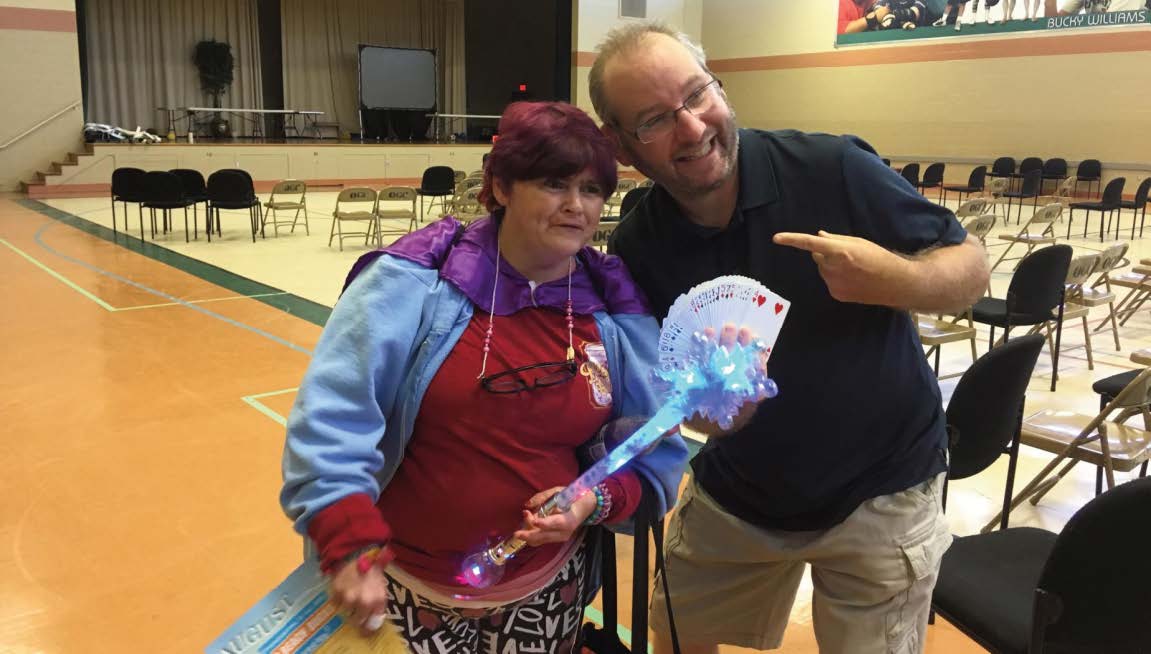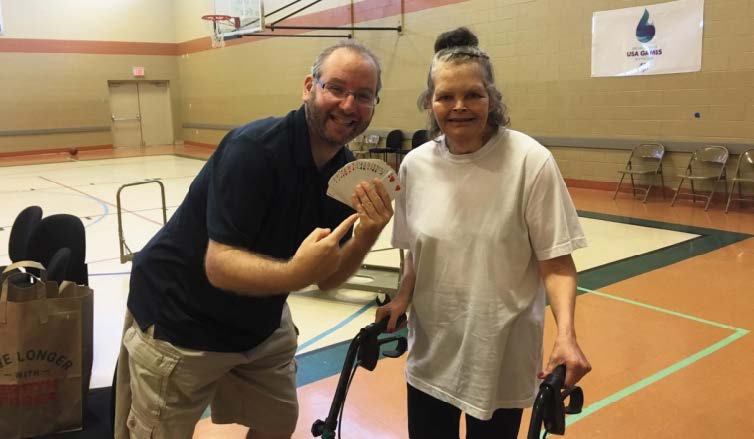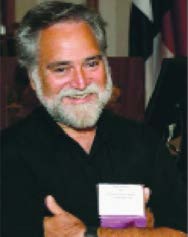RICK RADER, MD ■ EDITOR-IN-CHIEF
It's Magic, Pure and Simple
Harry Houdini, who remains the most famous magician of all time, remarked, "What the eyes see and the ears hear, the mind believes." Direct Support Professionals might add "and what the heart feels."
Most of us can reflect on the first time we saw something that was totally impossible to comprehend. It might have been seeing something disappear, or appear. It might have been someone telling you what number you are thinking of. It might have been seeing a man swallow swords or perhaps watch a pretty girl ascend from a table and float in the air. All of these "impossible to comprehend" stunts belong to a practice as old as recorded history. They're called magic. The earliest practitioners were considered "priests," a connection to religious beliefs and practices that often required a suspension of reality.
Magic, like other forms of entertainment, have various styles, schools, skills and platforms. There's production (producing something from nothing), vanish (some thing disappears), transformation (something becomes another thing), restoration (something is destroyed and then restored), transposition (objects change places), transportation (something is moved from one place to another), escape (the magician finds their way out of some restraint), levitation (something defies gravity), penetration (a solid object passes through another solid object), and prediction (magician describes the outcome or choice of the spectator). The methodology behind magic is often referred to as a science (often a branch of physics) while the performance aspect is more of an art form.
While you can purchase an "impossible to fail" magic trick and perform it right out of the box, the true art of magic requires thousands of hours of practice, performing and perfecting. Recently, the staff and individuals at the Orange Grove Center were entertained and baffled by a magician who had obviously put in the requisite hours to demonstrate just how baffling magic can be.
New York-based professional magician David Ferst, ("Magic Dave") was visiting Chattanooga and graciously performed to a crowd of individuals who, without scratching their heads, were certainly thinking and saying, "How'd he do that?"
While so much of magic requires hearing and understanding the patter of the magician (the set up story and the proposi tion), David understands the cognitive limitations of many people with intellectual disabilities and how they may not be able to "grasp" the "set up." With that appreciation, Magic Dave selects effects that are "stand-alone," astonishing and only requires a moment of shock and awe. Magic Dave also showed his understanding of an audience with a limited level of language comprehension by creatively including them as both assistants and targets. It was obvious from his audience members' facial expressions that they were pulled into a world where they had to suspend their understanding of understanding. Despite a full and hectic professional performing schedule, David devotes some of his time to perform voluntarily in nursing homes, hospitals and centers that support people with disabilities. He enjoys these environments as they remind him why he gave up admission to law school to pursue magic as a career; to bring joy, happiness and the sense of wonder to people. He feels his art is appreciated at the "purest" level by individuals who simply want to be astonished and included. While David was performing, his audience felt both – two emotions that would make anyone's day.
While there was only one professional magician performing, the room was filled with 50 other magicians – the Direct Support Professionals (DSPs) who support, assist and understand the individuals with intellectual and developmental disabilities. They are gifted in their own magical discipline. They also can make things disappear (like fear, anxiety, stress). They can make things appear (like smiles, back pats and high fives). They can levitate things (like self-esteem, confidence and curiosity). They can help people escape (from loneliness, isolation and stigma). And they can restore (goals, dreams and choices). Direct Support Professionals may not be able to pull a rabbit out of a hat like Magic Dave, but when it comes to performing "micromagic" a hundred times a day, they know the trick.
Harry Houdini who remains the most famous magician of all time remarked, "What the eyes see and the ears hear, the mind believes." DSPs might add "and what the heart feels."•

NOW YOU SEE IT: David Ferst understands the cognitive limitations of many people with intellectual disabilities and selects effects that are "stand-alone," astonishing and only requires a moment of shock and awe.

WORKING HIS MAGIC: David enjoys nursing homes, hospitals and centers that support people with disabilities as they remind him why he pursued magic as a career; to bring joy, happiness and the sense of wonder to people.

ANCORA IMPARO In his 87th year, the artist Michelangelo (1475 -1564) is believed to have said "Ancora imparo" (I am still learning). Hence, the name for my monthly observations and comments. — Rick Rader, MD, Editor-in-Chief, EP Magazine Director, Morton J. Kent Habilitation Center Orange Grove Center, Chattanooga, TN